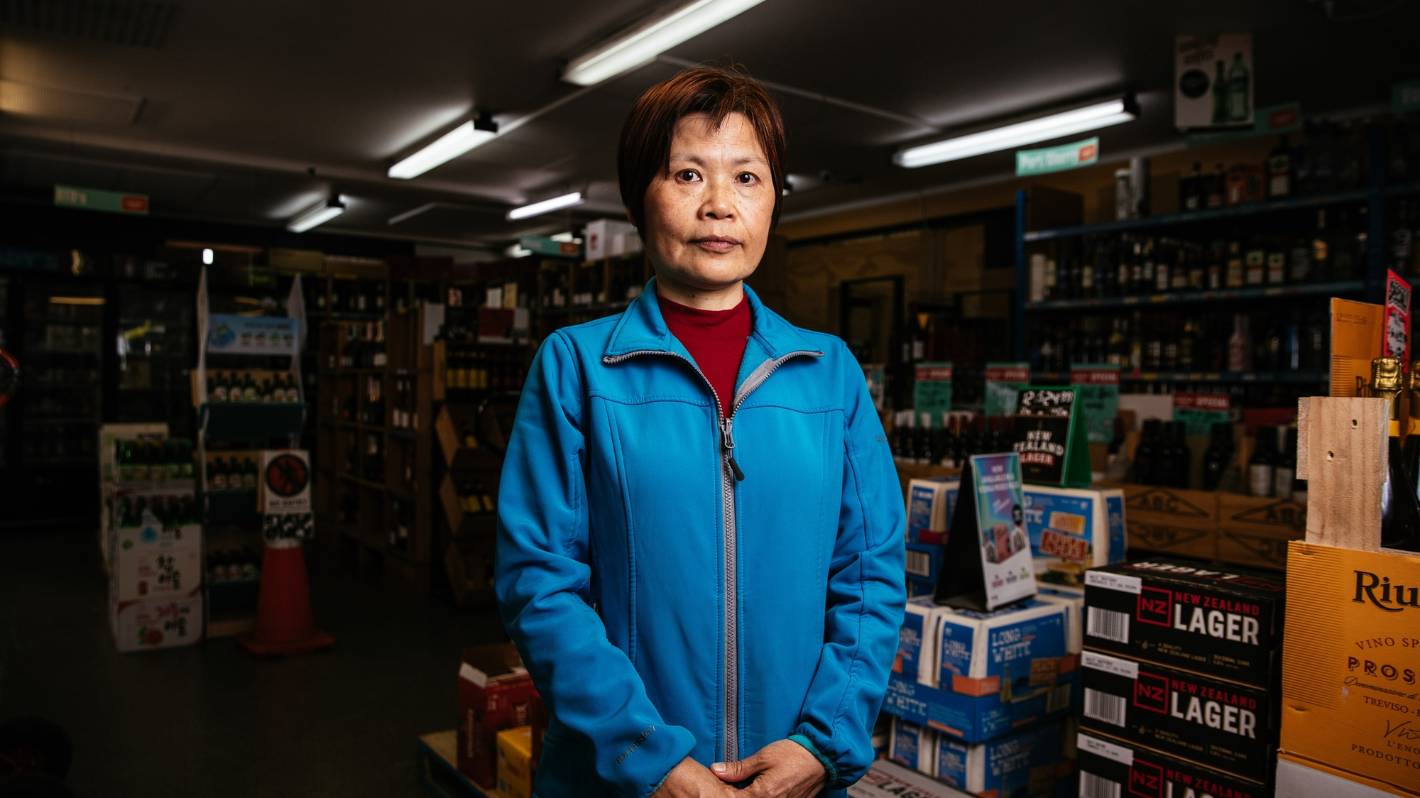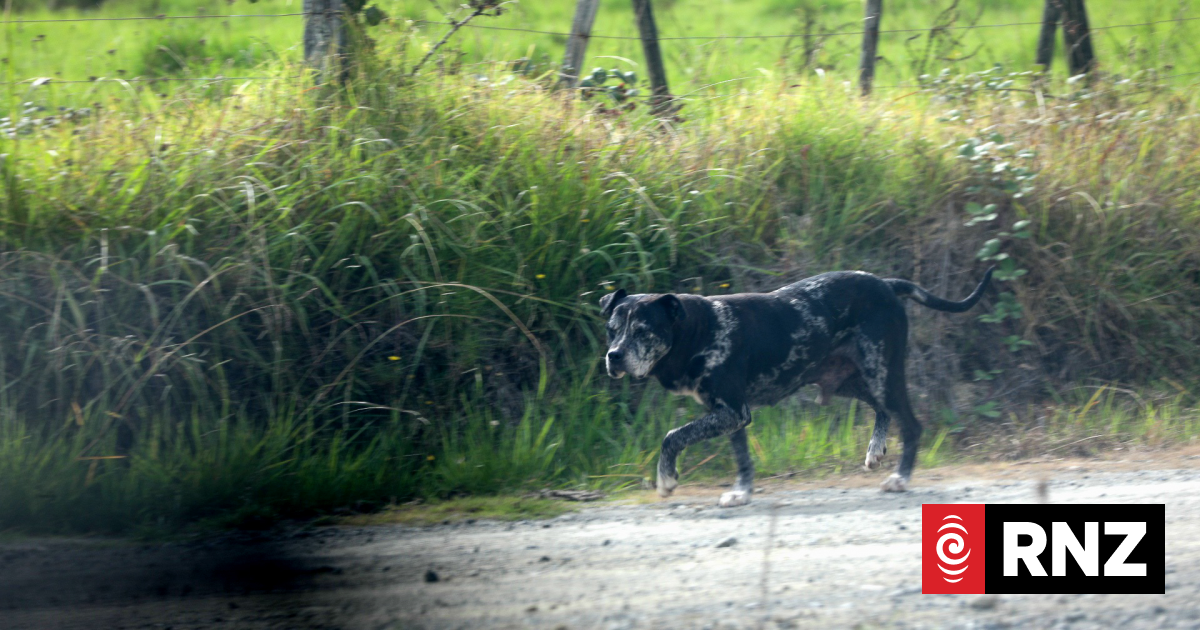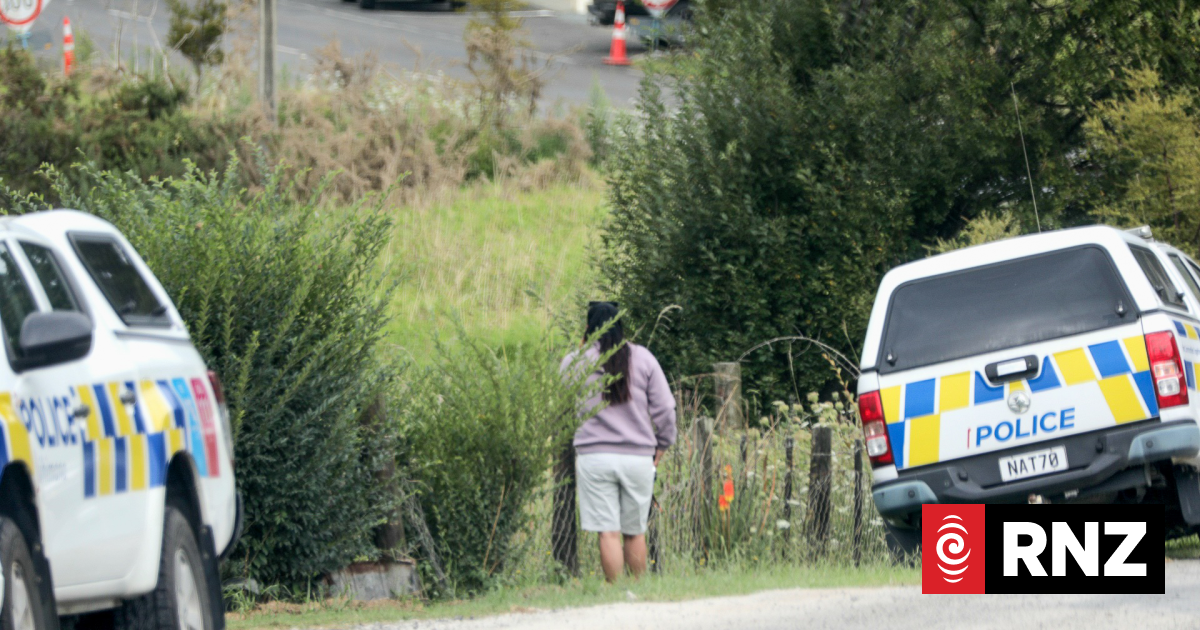- A liquor store owner who slept in his shop for eight weeks to stop further thefts is ineligible for help under the Government’s new crime prevention fund.
- The $6m initiative funds anti-burglary measures like bollards, alarms, sirens and fog cannons for businesses.
- However, business owners can’t apply for the fund themselves and are instead assessed by police.
- The owners of a Sandringham liquor store broken into six times say they’re disappointed they can’t get help through the fund.
Auckland business owners say the Government’s crime prevention fund is “disappointing”, as some who have been repeatedly burgled are ineligible for support.
The Small Retailer Crime Prevention Fund was announced in late May, a $6 million investment which promised solutions for business owners, including funded installation of bollards.
The announcement was branded by business owners at the time as “too little, too late”.
READ MORE:
* Auckland Transport looks to ‘simplify’ bollard installment process amid ramraids
* ‘Someone’s going to be killed’: Concern as owners arm themselves to defend shops
* ‘What about us?’ Dairy owners say police crime prevention initiative ignores them
Sandringham Liquor Store owner Anna Zheng had already been given a quote for bollard installation when the funding was announced.
When Zheng learnt the funding might give her the chance to have the costs reimbursed, along with other funded security measures, she went to her local police station to ask about her eligibility.
She was told by police she wasn’t eligible, based on the fact there were other businesses worse off than hers was, she said.
Abigail Dougherty/Stuff
Sandringham Liquor Store owner Anna Zheng had already been given a quote for bollard installation when the funding was announced.
The news came as a great disappointment to Zheng.
Her husband caught previously spent eight weeks sleeping in his shop to deter thieves. It had been ramraided once and broken into another five times.
“How many times do they expect me to experience a ramraid before I can get funding?” she said.
North Shore dairy owner Nitin Parshottam said he still hadn’t received any indication about funding, despite being ramraided and held at knife-point in recent months.
ROBERT KITCHIN/Stuff
A number of questions were put forward in Parliament to Police Minister Chris Hipkins about the prevention fund.
“What we’ve been through in the last year, the trauma takes a while to get through all of it.”
A number of questions were put forward in Parliament to Police Minister Chris Hipkins about the prevention fund. They revealed the funding was not “contestable”, meaning retailers weren’t able to apply for funding themselves.
Instead, eligible businesses were determined based on “past victimisations” and “weighted criteria”, which Hipkins believed creates equity by removing barriers to receiving the fund.
Five shops in Auckland have already been granted the funding. An additional 20 are expected to be assessed by police in the next four weeks.
National MP Dr Shane Reti said seven businesses in his electorate, Whangārei, had been ramraided over the past month. None had been given any indication as to whether they’d have access to the funding.
“The process and the access of funding isn’t transparent, the businesses are despairing,” he said.
Ricky Wilson/Stuff
Ramraided business owners cannot apply for the funding, they will only be approached by police if they’re eligible.
The Crime Prevention Group, which represents more than 4900 businesses nationwide, said it had received a “countless” number of calls from business owners frustrated by the funding initiative.
Group president, Sunny Kaushal wrote a letter to Hipkins on Tuesday, expressing his frustration about what he saw as a lack of consultation.
His frustration was compounded by the fact police only began looking for bollard suppliers this week, more than 100 days after the announcement, according to police correspondence seen by Stuff.
“We have no idea how [the funding] works, we’re urging the minister to change the distribution model and get it to affected businesses,” Kaushal said.
Police Assistant Commissioner, Chris De Wattignar said 18 potential suppliers of protective equipment have been identified so far, extra police have been brought on board to complete business assessments faster.
“This is just one part of Police’s work to address and prevent retail crime and youth offending,” he said.
“We are investigating ram raid burglaries and arresting offenders. We are also working alongside a range of partners to find solutions to what is a complex social issue.”




